The topic of Đào Duy Anh’s comments about the term “Hùng” came up in a discussion to a previous post, so I thought I would post his essay here.
In the second of the Hùng Vương Dụng Nước volumes, Đào Duy Anh has an article called “Offering an Opinion on the Question of the Hùng Kings” (“Góp Ý Kiến Về Vắn Đề Hùng Vương”). At the beginning of this paper he talks about the Chinese sources which refer to kings in the Red River delta in the past as either “Hùng” or “Lạc” and states that one can surmise that what was originally written as “Lạc” was changed to “Hùng” in a later text.
Having argued that the original term was more likely to have been “Lạc” than “Hùng,” he then states, “In any case. . . the name Hùng Kings is connected to the origin and destiny of our ancestors, and having passed through so many old histories, from the Đại Việt sử ký toàn thư onward, and since the traditions of the people [dân tộc] also use this term, today we will still honor and preserve it.”
“Dù sao nữa. . . cái danh hiệu, Hùng Vương gắn liền với nguồn gốc và vận mệnh của tổ tiên chúng ta mà trải qua bao nhiêu đời sử cũ từ Đại Việt sử ký toàn thư về sau và truyền thống của dân tộc vẫn gọi thế, thì ngày nay chúng ta vẫn trân trọng và giữ theo.”
In other words, what Đào Duy Anh says here is that, “In examining the evidence, it appears that A is correct, but since we’ve always said that B is correct, we should keep saying that B is correct.” This is truly “khoa học”. . .
What Đào Duy Anh says after this is fascinating. He goes on to talk about Vietnamese historical sources and notes that Vietnamese scholars have never examined the various versions of a given text and tried to produce a collated “authoritative” version. Forty years later, this is still the case. In I think the 1980s, the Taiwanese scholar, Chen Jinghe, produced such a version of the Đại Việt Sử Ký Toàn Thư, but no Vietnamese scholar has ever done anything like this.
He then notes the problems with Vietnamese historical texts. Many of them are hand copies filled with mistakes. He then states that one particular problem is that during the colonial period, the EFEO procured copies of texts, but because they apparently paid more for more pages of text, people would add material from other texts when they were copying a text for the French.
He uses the Lĩnh Nam Trích Quái as an example of this. Although I had never considered that the chaotic condition of the extant versions of that text might be because of this problem in the way the French procured texts, it makes sense that this might be a contributing factor, because that text is extremely problematic.
Đào Duy Anh then goes on to talk about the problem of translating texts from classical Chinese to quốc ngữ. He points out that people should not translate a classical Chinese text into quốc ngữ unless that text has been “organized” (chỉnh lý), that is, unless it has been compared with other versions of the same text and a authoritative collated version has been produced.
Đào Duy Anh also notes that simply knowing classical Chinese is not enough to translate a text. A translator has to truly understand the content as well.
There is more to this article, but this first part is very interesting. The late 1960s was a difficult time to be a scholar in Vietnam. Scholars in the North were being pressured by the government to create a history of the “Vietnamese nation” which extended back to the time of the “Hùng Kings.”
Đào Duy Anh clearly had some problems with this. He made it evident that the term “Hùng” was a problem, but he didn’t fight it. That said, in reading what he says about Vietnamese sources, I think he did challenge the powers that be.
The effort in the North in the 1960s to “prove” that the “Hùng Kings” had truly existed was spearheaded by the Institute of Archaeology. At the end of the first section, on page 282, Đào Duy Anh basically says to the Institute, “if you folks are doing this, surely you are going to make use of the sources in classical Chinese in a professional and accurate manner.”
Obviously he knew that this was not the case. At least that is how it appears to me. So to me Đào Duy Anh seems to be saying in this essay, “You want me to say that there were Hùng Kings. Ok, there were Hùng Kings, but I’m an old scholar who is not going to live much longer. If you really want people to believe you, your scholarship better be good.”
The scholarship which was produced by scholars at that time was not good, but it is still believed today. Since that time, no Vietnamese scholar has produced a collated version of a premodern text, and many many many translations into quốc ngữ have been made by people who know classical Chinese but who don’t really understand the content of the text they translate.
At least we know that “Hùng Vương có thật”. . .
I’d be curious to hear from someone who can read between the lines of an essay like this better than I can.
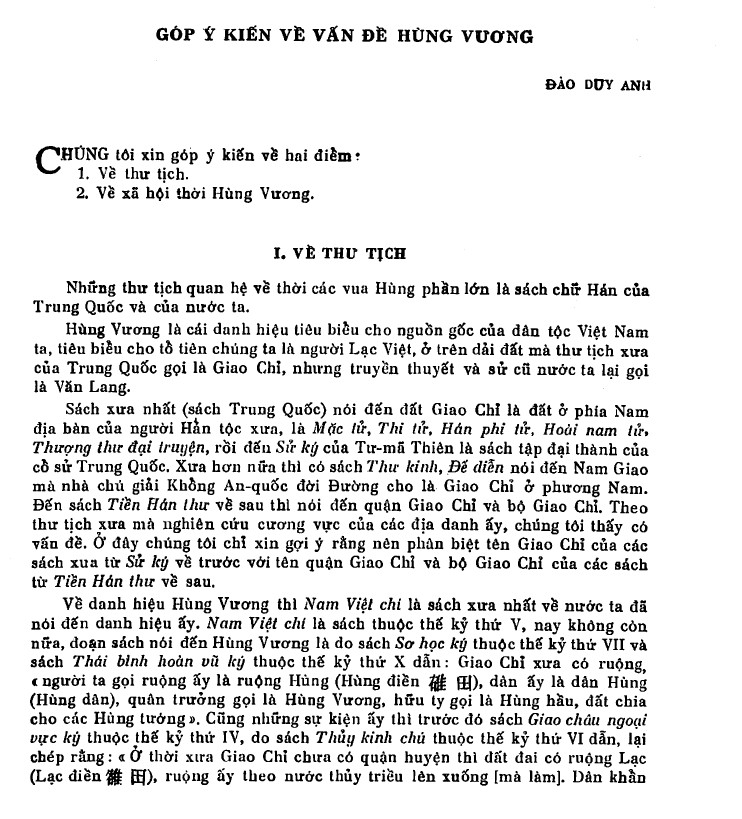
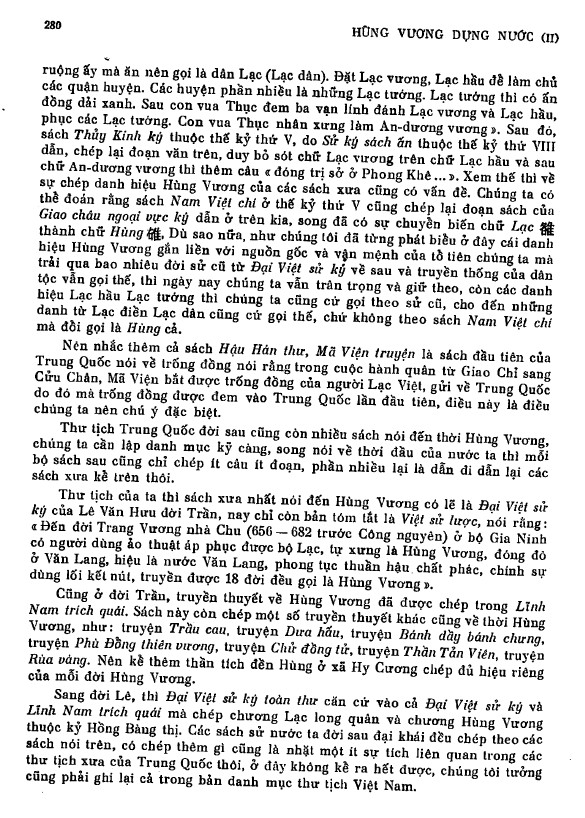
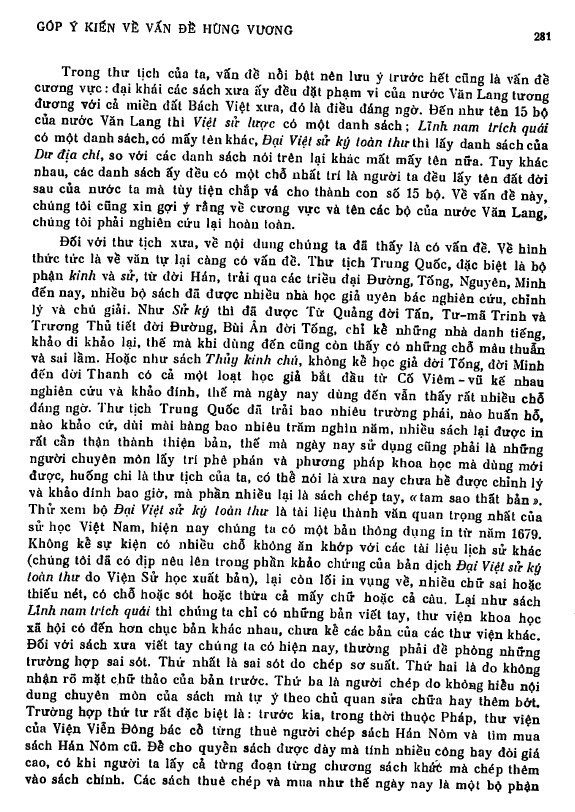
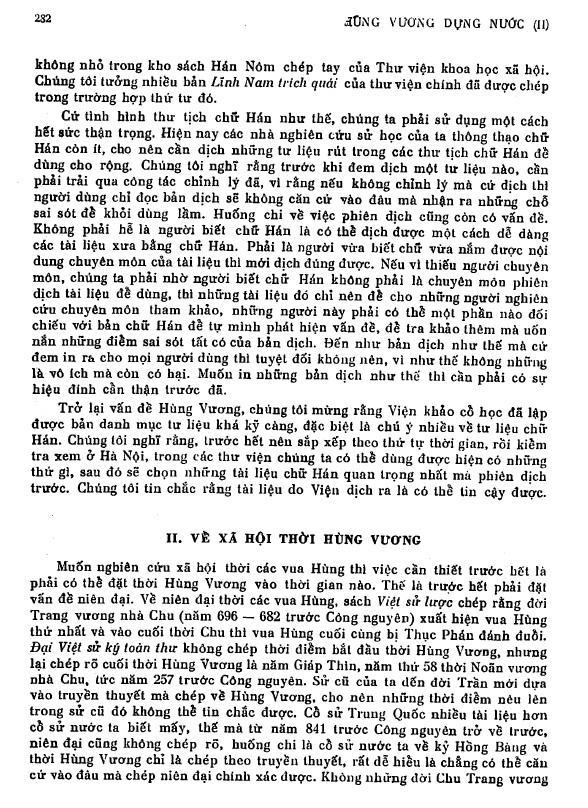
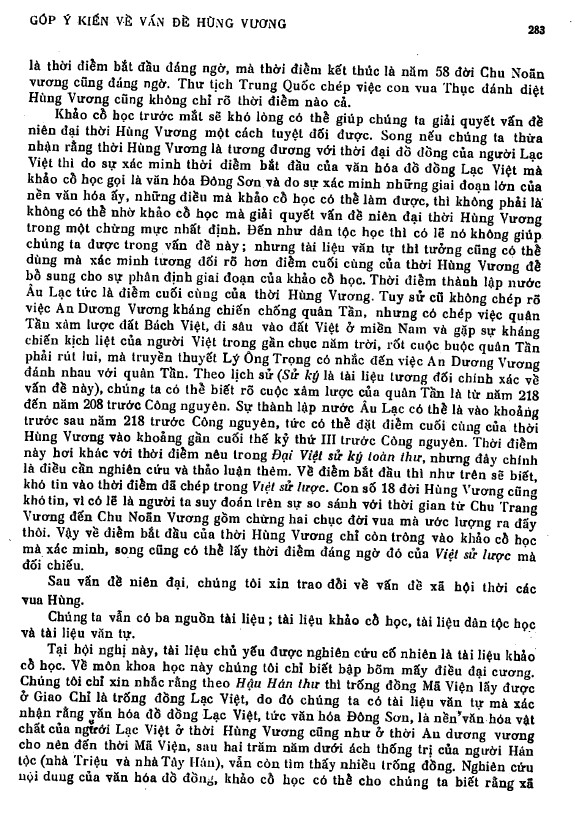
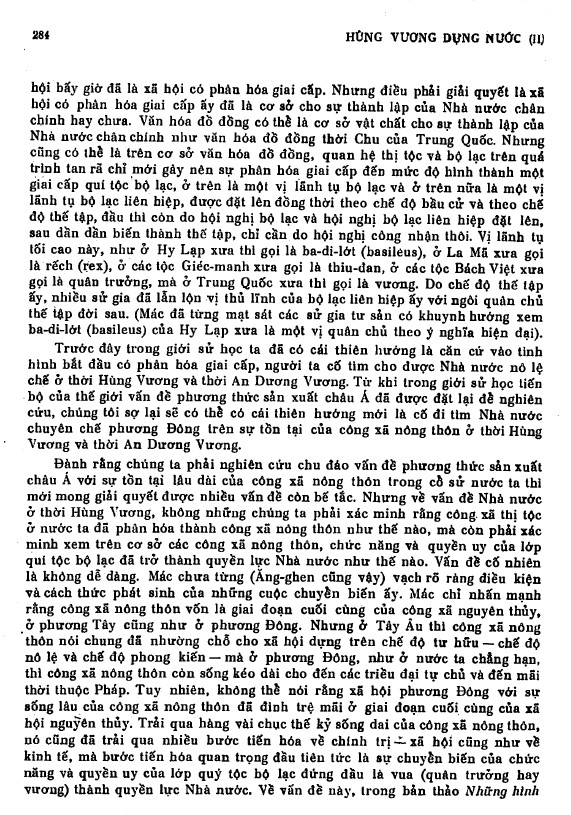
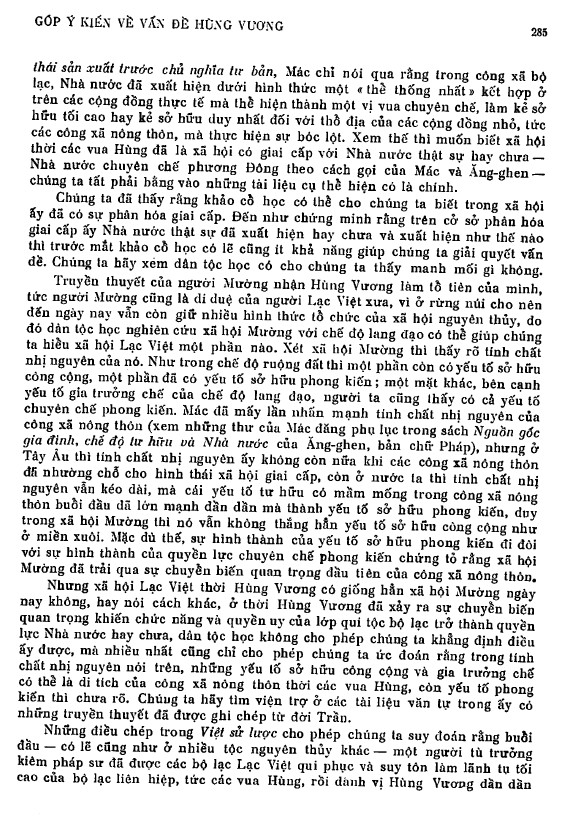
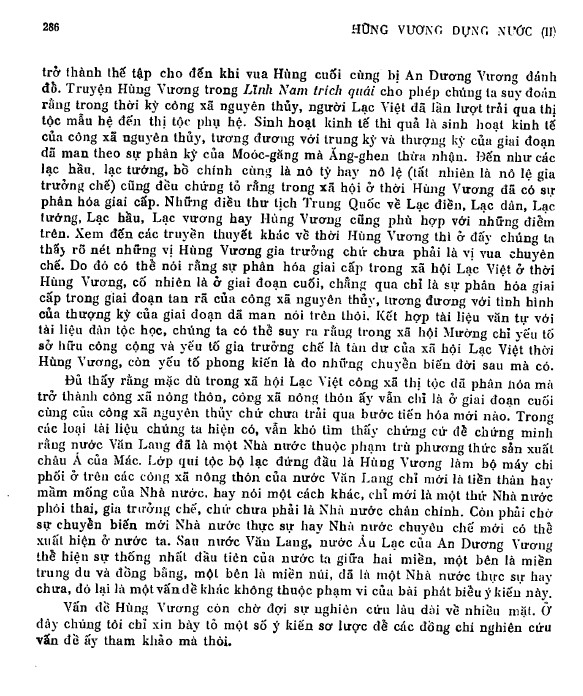
This Post Has 5 Comments
Dao Duy Anh’s scholarship is very boring. By this speech, he was no more historian. He talked about the materialistic dialectic, about the formation of the social classes. He paid tribute to Karl Marx. He sized, scaled back the Hung Vuong matter to get along with the official line. He drowned himself in the cooker of the history vending machine (tomber dans la marmite).
This is the same mania by which Hanoi literature critics dealt with “thằng bờm với cái quạt mo”. The tiny country lad all the times actes dialectically!
Thank you for another Dao Duy Anh new to my knowledge. How disappointed I am!
For what it’s worth, I think that Dao Duy Anh in the 1950s was worthy of respect. While we can look back at that scholarship now and find problems with it, in terms of ability and what he was doing, I think he was on the same level as scholars in China, Taiwan, Hong Kong and Japan at that time. It’s when war and politics took over in the 1960s that everything started to decline.
You get the point. It’s hard to fathom his colossal contribution to the country’s intellectual heritage until….He belonged to the cream of his time, along with Hoàng Xuân Hãn, Phạm Quỳnh, etc.. He should hold a prominent place in the pantheon, if any, of illustrious persons.
We recognize the spell of the moment he had to shoulder, for the sake of his skin, if he didn’t want to be a Nguyễn Mạnh Tường, a Trần Đức Thảo.
By donning a dogmatic cloak, he had to act like others (il faut faire comme tous les autres).
An American saying has it that when we have lemons, let’s make limonade. I mean to enjoy only the best by Dao Duy Anh.
I agree.
“In other words, what Đào Duy Anh says here is that, ‘In examining the evidence, it appears that A is correct, but since we’ve always said that B is correct, we should keep saying that B is correct.’ This is truly ‘khoa học’…”
I’m afraid that you misunderstood his point. I supposed what Đào wanted to say is that: “In examining the evidence, it appears that it is called ‘A,’ but we have been familiar with the calling ‘B,’ then so be it.”